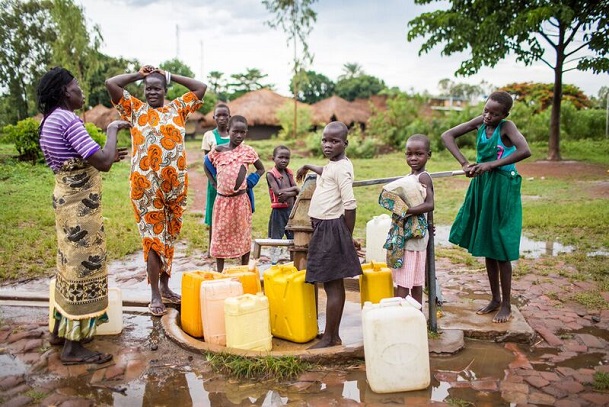 Wash your hands regularly and wear a face mask.
Learn more
Wash your hands regularly and wear a face mask.
Learn more

Status of Cholera in 2023
Recently, the Nigerian government has confirmed the outbreak of cholera in twelve states across the country.
According to reports made by the Nigeria Centre for Disease Control (NCDC), there have been a total of 922 suspected cases including 32 deaths from 12 states (32 LGAs) in the year 2023. These States are Abia, Bauchi, Bayelsa, Cross River, Ebonyi, Kano, Katsina, Niger, Ondo, Osun, Sokoto, and Zamfara.
Five (5) states – Cross River (647 cases and 16 deaths), Ebonyi (97 cases and 6 deaths), Abia (72 cases and 6 deaths), Niger (38 cases and 2 deaths), Zamfara (28 cases and 1 death) account for 96% of all cumulative cases. Other States are Bayelsa (16 cases and 1 death), Ondo (10), Katsina (5), Kano (3), Sokoto (3), Bauchi (2), and Osun (1).
The predominantly affected age group is persons below the age of 45 years. Of all suspected cases, 54% are males and 46% are females.
The Nigeria Centre for Disease Control and Prevention (NCDC) in partnership with State Ministries of Health initiated an emergency response to the outbreak and is monitoring the situation.
What is Cholera?
Cholera is an acute diarrheal disease caused by Vibrio cholerae. It is a potentially life-threatening, primarily waterborne disease that continues to cause deaths among children, especially in an endemic area such as Nigeria. It is often described as a classic water-borne disease because it is commonly associated with contaminated water, though transmission can also occur through contaminated food.
The bacteria Vibro Cholerae causes intestinal infection and severe watery stool that results in the loss of large volumes of this stool, leading to severe and rapidly progressing dehydration and shock. Without adequate and appropriate rehydration treatment, severe cholera kills about half of the affected individuals.
In Nigeria, cholera is an endemic and seasonal disease, occurring annually mostly during the rainy season and more often in areas with poor sanitation, with the first series of cholera outbreaks reported between 1970 and 1990.
How Cholera Is Contracted and Managed
Humans are the main reservoir of Vibro cholerae but water, aquatic plants, and fish are potential reservoirs. Cholera is usually transmitted through a faeces-oral path via the ingestion of contaminated water or food. It is linked to inadequate access to clean water and sanitation facilities especially in rural areas where the basic infrastructures are not available, or at internally displaced person camps.
Symptoms of cholera include diarrhea (sudden and continuous loss of body fluids); nausea and vomiting; dehydration – this can develop within hours ranging from mild to severe; irritability, fatigue, sunken eyes, a dry mouth, extreme thirst, dry and shriveled skin, little or no urinating, low blood pressure, and an irregular heartbeat. It takes between 12 hours - 5 days for a person to show symptoms, and is asymptomatic or mild in 80% of cases, with only about one in 10 infected people developing the typical signs and symptoms of cholera disease, usually within a few days of infection.
Most people infected with Vibro cholerae do not develop any symptoms, although the bacteria are present in their faeces for 1-10 days after infection and are shed back into the environment, potentially infecting other people.
Management and Prevention
Diagnosing cholera is done by taking stool samples from the infected patient before antibiotics are administered. Rapid diagnostic tests (RDT) can be used for screening before confirmation in the laboratory. These tests enable doctors in remote areas to quickly confirm a cholera diagnosis, which helps to decrease death rates at the start of cholera outbreaks and leads to earlier public health interventions for outbreak control.
Cholera is an easily treatable disease that requires immediate treatment because the disease can cause death within hours. The majority of people can be treated successfully through prompt administration of oral rehydration solution (ORS). The WHO/UNICEF ORS standard sachet is dissolved in 1 litre (L) of clean water. Adult patients may require up to 6 L of ORS to treat moderate dehydration on the first day.
Most patients that are severely dehydrated are at risk of shock and require the rapid administration of intravenous fluids. These patients are also given appropriate antibiotics to diminish the duration of diarrhea, reduce the volume of rehydration fluids needed, and shorten the amount and duration of Vibro cholerae excretion in their stool.
Mass administration of antibiotics is not recommended, as it has no proven effect on the spread of cholera and may contribute to antimicrobial resistance.
The administration of zinc might decrease diarrhea and shorten how long it lasts in children with cholera. It is an important adjunctive therapy for children under 5, which may prevent future episodes of other causes of acute watery diarrhea. Breastfeeding children exclusively should be promoted among mothers to prevent cholera in such children.
Prevention of cholera depends on a combination of access to safe water, sanitation and hygiene, social mobilization, basic hygiene needs, and oral cholera vaccines.
Water Supply and Sanitation
As widely known, cholera is usually transmitted through contaminated water or food. This is the reason why outbreaks can occur sporadically in any part of the world where public water supply; public sanitation, are inadequate.
Personal Hygiene and Food Preparation
Vaccines
Cholera vaccines are also another effective way to protect and also treat people from cholera diseases. Oral vaccines are the most common form of vaccine available in protecting people against cholera. Two or three doses of these vaccines are typically recommended, and the duration of protection is two years in adults and 6 months in children aged 2 – 5 years. A single dose of this vaccine is available for those who might be traveling to endemic areas where cholera is common. Currently, there are three types of qualified oral vaccines recommended by the World Health Organization (WHO) namely Dukoral, Shanchol, and Euvichol.